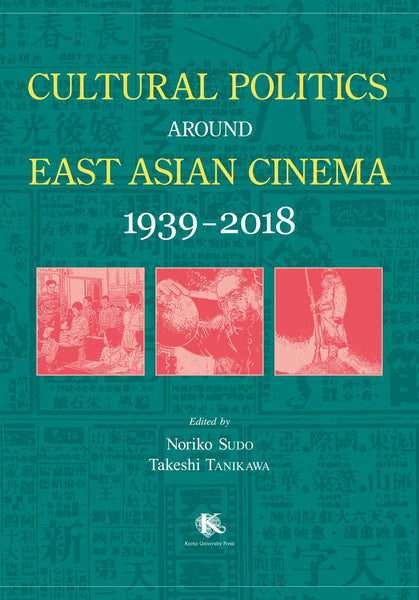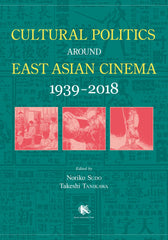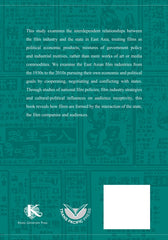Cultural Politics around East Asian Cinema 1939-2018
Many In Stock
This book examines the interdependent relationships between the film industry and the state in East Asia, treating films as political economic products, mixtures of government policy and industrial motives, rather than mere works of art or media commodities. Chapters examine the East Asian film industries from the 1930s to the 2010s, which pursued their own economic and political goals by cooperating, negotiating, and conflicting with states. Through studies of national film policies, film industry strategies, and cultural-political influences on audience receptivity, this book reveals how films are formed by the interaction of the state, the film companies and audiences.
About Editors and Authors
Yanli HAN
Associate Professor at the Graduate School of Arts and Sciences, Tokyo University. She specializes in Asian film history and Chinese language films.
Benjamin JOINAU
Doctor of Cultural Anthropology specialized in Korean Studies. He is an associate researcher of the Center of Korean Studies (CRC) at EHESS, Paris, and assistant professor at Hongik University, Seoul. He has been living and working in South Korea since 1994. His Ph.D. thesis has analyzed the regimes of otherness in Korean cinema. Through the hermeneutics of cinema and now of urban materials, he is exploring representations and practices in the Korean public sphere (regimes of visibility/invisibility in cityscapes, urban agriculture micro-practices, semiology of spatial forms, etc.).
KATO Atsuko
Part-time lecturer at Gakushuin Women’s College, specializing in Japanese modern history.
KIMURA Tomoya
Part time lecturer at Tamagawa University and Meiji Gakuin University, specializing in animation studies, especially at the point of industrial history.
MISAWA Mamie
Professor in the Department of Chinese Language and Culture, College of Humanities and Sciences, Nihon University.
SUDO Noriko
Professor in the Faculty of Contemporary Social Studies, Media Course, Chikushi Jogakuen University. She specializes in cultural politics and media studies. She worked as a program director at Japan Broadcasting Corporation, Nihon Housou Kyoukai (or simply NHK) from 1991–1993 and as a freelance TV producer from 1993–2002.
TANIKAWA Takeshi
Visiting professor of film history and popular culture studies at the Graduate School of Political Science, Waseda University (Tokyo), and a well-known freelance cinema journalist and film critic for more than two decades. After working for Nippon Herald Film Co. for eight years as publicity staff and marketing director, he has worked both in academia and journalism. His thesis won the prestigious First Kyoto Film Culture Award in 1999, which later become his dissertation for a PhD in sociology at Hitotsubashi University (2001) and was published by Kyoto University Press as American Films and the Occupation Policy (2002).
Youngjae YI
Researcher at Center for Cross Cultural Studies in Sungkyunkwan University, specializing in film studies and Asian film history.
Table of contents
Figures
Tables
Photos
List of Contributors
Introduction
Noriko Sudo
1 Film Control in the Japan Film Law (Eiga-ho)
Atsuko KATO
Show More >
Figures
Tables
Photos
List of Contributors
Introduction
Noriko Sudo
1 Film Control in the Japan Film Law (Eiga-ho)
Atsuko KATO
2 “Me-istic Nationalism” in Films Promoted by the Japan Self-Defense Forces: Focus on Midnight Eagle as an Example
Noriko SUDO
3 Collaboration between U.S. Film Industry and U.S. Government for Film Distribution in the Republic of China
Takeshi TANIKAWA
4 WWII Film Production in Chongqing: The Japanese Spy
Yanli HAN
5 Factors in the Establishment of the Animation Industry in Postwar Japan
Tomoya KIMURA
6 Virtuous and Depraved: Portrayals of Women in North Korean Cinema
Benjamin JOINAU
7 Dual Language, Dubbed Cinema: An Enlightened Colonial Subject in Homeless Angels
Youngjae YI
8 Double-edged National Imagery: From The Daughter of the Samurai to My Japan
Takeshi TANIKAWA
9 The Mysterious Popularity of Japanese Films in Taiwan in the 1950s and ’60s
Mamie MISAWA
Index


